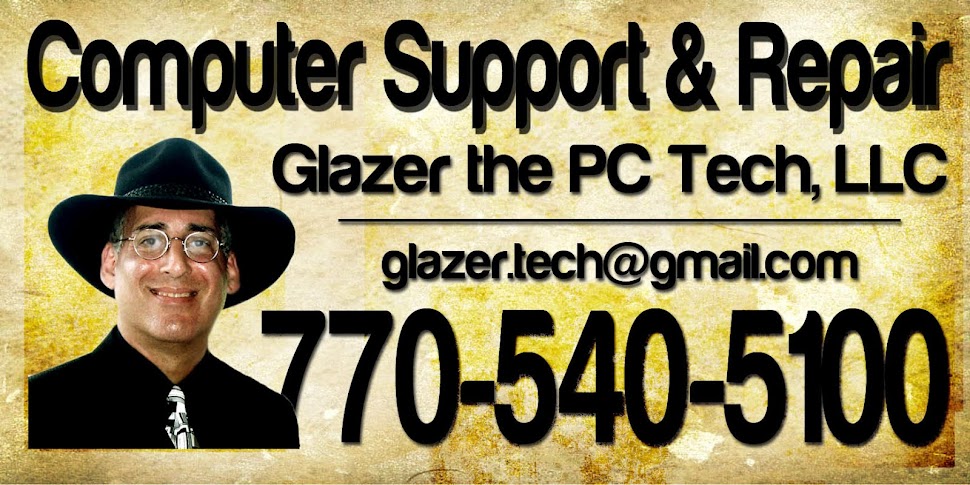However, considering the economy we are in, it may be more prudent to replace your brakes or tires before getting a new computer, especially if it still works.
For the rest of you, let’s talk. There‘s no reason why, with regular maintenance, you can’t keep an older computer running, dare I say, even fast.
Just because your computer doesn’t have the latest version of Windows or your hard drive is full, that’s no reason to upgrade. With a little bit of work and even less money, you can resurrect your aging computer.
Hard drives have grown in size over years. Five years ago, a 160-gigabyte drive was the standard; now it’s 500 GB to a TB (a terabyte equals 1,000 GB). Your aging drive may be near full by now.
Windows requires free disk space to write temporary files in order for it to run properly. These files accumulate over time and need to be deleted regularly.
Transfer your photos, videos and movies to an archival drive, to the cloud or burn them to DVDs. You may keep that drive in your desktop, but use it as a storage drive. Buy a new, larger drive and use it as your system drive, moving Windows to it.
With a laptop, I put my older, smaller drives in external, USB-connected cases, replacing them with larger drives in the laptop.
If you have an older computer, you may have only 512 MB of RAM (system memory) installed. Systems with integrated video cards share the RAM, making it even less.
Thought to be sufficient at the time, that small amount isn’t capable of handling today’s applications — not with any speed, anyway. The single most cost-effective improvement you can do is add more RAM to your computer.
A gigabyte of RAM might cost only $40, much less than when your computer was new.
Websites like memory.com and crucial.com will scan your system, telling you how much RAM you have, what your system can handle, and what it will cost. You can install it yourself or if you have doubts, a technician like me could do it for you.
If you’ve already had to repair your computer a few times, instead of fixing the errors, erase them. By reinstalling Windows, you will have the computer you had when you brought it home from the store.
Since you know more now than you did then, it will be faster. You’ll have more memory and a clean hard drive.
Keep watch on the startup folder: you can stop unnecessary programs from loading with Windows when it boots up. This is a major cause of sluggish systems. Applications that you don’t use daily often boot with Windows. If you remove them (programs like iTunes, Skype, AOL, Messenger various schedulers and updaters), not only will your computer boot faster, but it will also run faster.
This won’t remove them from your computer, only from the startup folder.
There’s another option to consider. If the problem is not with the hardware or if you can’t put your hands on that old XP disk, then consider upgrading your operating system. If you had XP, get Windows 7. Don’t waste your time with Vista, even if you could find it somewhere.
It’s better to spend a couple of hundred bucks on an OS upgrade, than $500 or more on a new computer if you really don’t need it, or can’t afford it. However, should you need to go that route; you’ll get that new Win 7 anyway.
You might as well learn how to take care of your computer; it’s not going anywhere. Just like your car, it requires twice-annual maintenance. Just as you rotate the tires, change the oil and tune it up, check for viruses, defrag your hard drive and tune it up.
Some things to consider as regular maintenance should include: checking the registry’s integrity, defragmenting the hard drive and running Chkdsk to check the file structure.
Also, clean dust from the fans and motherboard. Scans should include virus and malware detection. Just in case, also create regular restore points, backup the data you don’t want to lose and have a system backup or even clone your hard drive. Some of these will help extend the life of the computer, while others will allow you continue with your data in another system should the original fail.
With proper care, just like with cars, you can get a lot more mileage from your old system.
Your computer, like rock ‘n’ roll is here to stay.
Arthur Glazer is a freelance writer and computer technician in Gainesville. His column appears biweekly on the Business page and on gainesvilletimes.com.

No comments:
Post a Comment
Got a Comment - or a quick question...